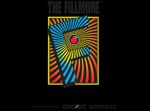The Grammys in Mexico: Chente’s dead, but nobody got slapped

I waited a day to write Music Sin Fronteras this week so I could write about the Grammys. The Grammys are not a big thing in Mexico, although this year they generated a huge online buzz that spilled out into the streets and the taquerias. But more of that later.
As I talked about in last week’s MSF, rock n’ roll arrived in Mexico around 1956, courtesy of an American actress and singer, Gloria Rios, who went on to record the first Mexican original rock and roll song, “La Mercedora”. Since then, Mexican popular music has tracked that of its northern neighbor since then, but, of course with its own twist, and sometimes a little ahead of the US in developing new genres, like post-rock.
But the Grammys are an American (and Canadian, given the many Canuk winners over the years) Award Show; Mexicans pay much more attention to the Latin Grammys. But the Academy has created 5 Latin categories that do attract Mexican viewers – Best Latin Pop Album, Best Latin Jazz Album, Best Música Urbana Album, Best Regional Mexican Music Album (Including Tejano), Best Latin Rock or Alternative Album, and Best Tropical Latin Album.
Of these only, the Best Regional Mexican Music Album is stuffed with Mexican nominations, for obvious reasons, although a few Texans sneak in once in a while as Tejano artists. There were no Mexicans in the other categories except for Zoe’s nomination in Best Latin Rock or Alternative Album (Alex Cuba won for “Mendó.”)
But this year all eyes in Mexico were on the Grammys because of the nomination of Vicente Fernández for his album A Mis 80’S. And he was up against two national musical heroines here, Mon Laferte for her new album Seis with over 47 million streams on Spotify, and Natalia Lafourcade for the popular Un Canto Por Mexico, Vol. II, which racked up 16 million Spotify streams within a couple of weeks of release.
But the thing is, Vicente Fernández (known popularly as ”Chente”) is a national hero, emperor of music, and king of all things guitar and song in Mexico. He launched a whole new type of Mexican music and many current stars emulate him. Some music critics here call him the greatest Mexican singer who ever lived. Musicians and ordinary people copy his clothing styles.
In other words, he is insanely popular. And he is dead.
The fact that he is no longer with us, having died at the age of 81 on December 12 last year in Guadalajara, kicked off massive shows of mourning and honor across Mexico. Over 100,000 people showed up at Mexico City’s VFG stadium for a farewell mass and concert. Mexicans came from as far away as Florida to honor him. The Mexican news networks ran the story for days. The President of Mexico broadcast the Vicente Fernández song “La Manera”, put up a memorial for Vicente Fernández in the Capitol, and personally gave his condolences to Vincente’s family. In other words, his death was not exactly a secret.
But somehow, the Grammy producers missed it.
Fernández’s nomination for a Grammy – his fifth with 14 nominations – seemed a pretty sure thing despite the competition. And he won. Unfortunately, no one told the presenter, Jimmie Allen, that Vicente Fernández was no longer among the living. Allen waited for a minute after announcing Fernández as the winner and then realized he was not coming up to accept the award. So Allen told the crowd that Fernández could not come to Las Vegas and he , Allen, would accept the award on Fernández’s behalf.
Mexicans were hanging on their phones and TV sets to see if their hero won, or if the award would go to one of the two nominated national music queens. Either way, it would be a great recognition for Mexican artists on a global TV show. Unfortunately, what they got was further proof that knowledge of Mexican culture outside of Mexico doesn’t go much beyond beer for the Mexican non-holiday Cinco de Mayo, and big sombreros (which Fernández popularized).
There were headlines in Mexico. The national newspaper Milenio blasted out “Quién es Jimmie Allen/ El músico que no conocía Vincente Fernández en Los Grammy” (who is Jimmie Allen/The musician who did know Vincente Fernández). Similar headlines showed up in El Comercio and other Mexican papers and even reached The Dallas News and the US TV networks.
But my Mexican friends took it with humor. After all, many said, none of them had ever heard of Jimmie Allen either. And one of my Mexican friends pointed out that está todo bien because nobody got slapped.
























